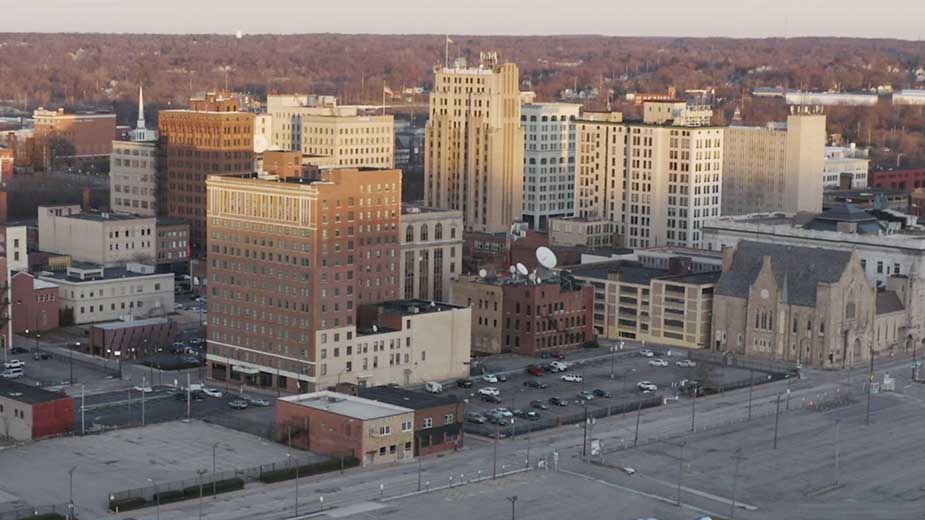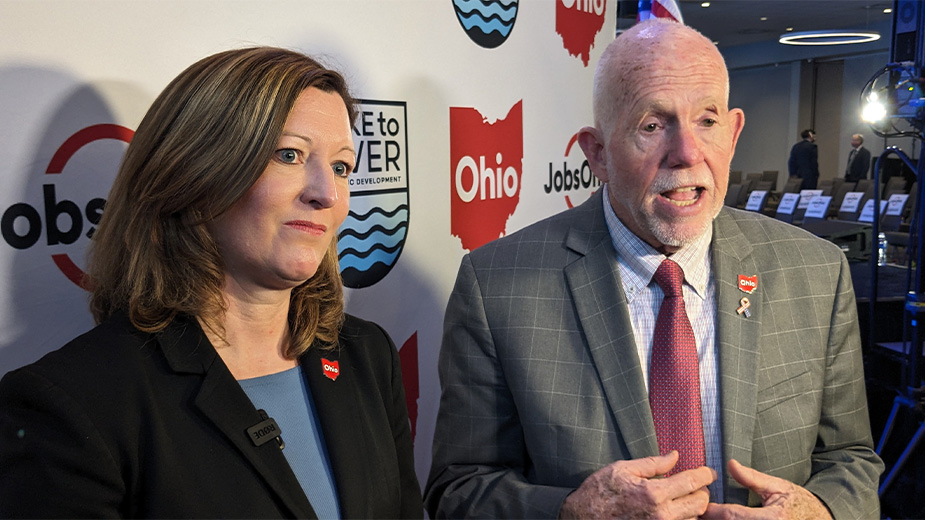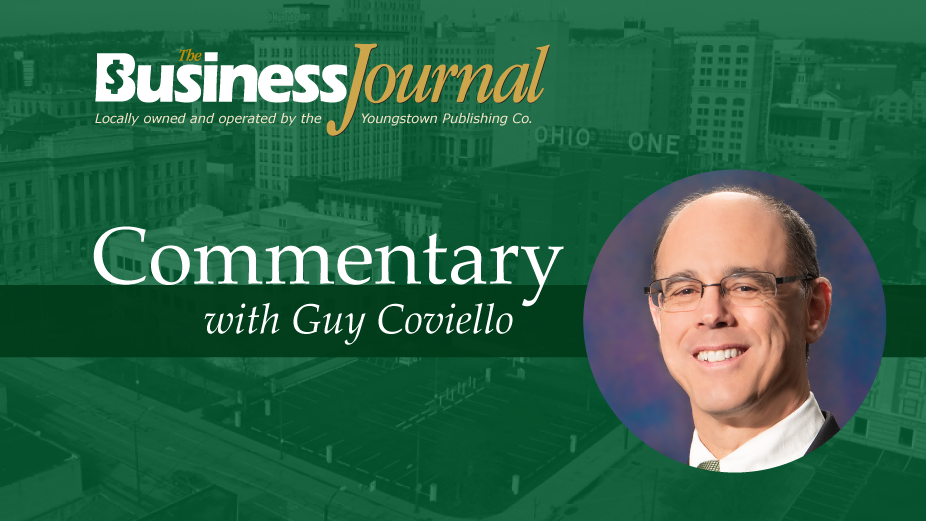Together in Transformation: It’s Working – Part 2
Editor’s Note: This is the second part of our Growth Report 2021 cover story. You can read Part One HERE.
Grassroots Leadership
Improving quality of life is an essential element of economic transformation – particularly in urban centers, community leaders say.
Often, this begins at the ground level as community groups tackle poverty, low-income housing, neighborhood blight, racial disparities and the nutritional health of those in need.
“Collaboration is imperative,” says Jennifer Roller, president of the Warren-based Wean Foundation.
Several years ago, Roller says she reached out to the heads of The Youngstown Foundation and the Community Foundation of the Mahoning Valley and other philanthropic groups. “We began to meet for coffee and lunches – just to get to know each other,” she recalls. “That was key.”
The collaborations that followed proved critical in a time of crisis as the COVID-19 pandemic began to rampage through the Mahoning Valley, Roller says.
A consortium composed of the Wean, Youngstown and Community foundations distributed more than $2.5 million to those in need as the pandemic intensified, Roller says.
“When COVID hit, we had already built this relationship,” she says. “We came together and were able to launch an application within days.”
The joint effort focused on areas where racial and income inequities were most apparent – housing, food insecurities and educational opportunity gaps, Roller says. The foundations awarded monies to those in need of help to pay their rents, home repairs and remote learning efforts.
For example, the group contributed $75,000 to a larger state fund that matched another $225,000 to help remote learning programs in the area.
“It leveraged $300,000 total,” Roller says. School districts in Warren, Youngstown, Struthers, Campbell and the Mahoning County Education Service Center all received help from the effort. The consortium also worked with the Second Harvest Food Bank to distribute and provide meals, she says.
Likewise, the Wean Foundation’s long-standing partnerships with community development corporations are central to transforming inner-city neighborhoods.
“In 2020, we did more housing repair projects than any other year,” says the executive director of the Youngstown Neighborhood Development Corp., Ian Beniston. The organization repaired 123 roofs last year, compared to 60 in 2019. In all, YNDC repaired more than 302 occupied houses, 36 of which were full renovations. Another 19 vacant houses were renovated, Beniston says.
“We can’t do these without our partnerships.”
Beniston says the area’s lending institutions also are critical players in neighborhood revitalization. Local banks and foundations have made it possible for YNDC to build new houses and improve older housing stock. And they’ve supported YNDC efforts to rehabilitate vacant commercial buildings, he says.
“This past year, we’ve had more foundation and bank support than ever,” Beniston says. “They’ve really stepped up to the plate.”
YNDC relies on other partners such as the Mahoning County Land Bank, housing developers, the city of Youngstown and the Western Reserve Port Authority, Beniston says.
YNDC recently performed a citywide housing market analysis of owner-occupied properties. More than half of these households are considered low-income.
“Housing is more important than it ever has been,” Beniston says, reflecting on the pandemic’s impact. “More people are staying home. And we have a serious housing-quality challenge in the city.”
This year, YNDC plans to construct two houses in the Volney neighborhood, not far from where the nonprofit rehabilitated the former Carmelite Monastery into a neighborhood action center and upstairs apartments, Beniston says.
Workforce, Business Development
Interaction within the business community, cooperation and collaboration is essential to the region’s transformation – from helping tech startups to manufacturers pursuing new markets and every business sector, says Ron Emery, board chairman of the Youngstown chapter of Score, a national business mentoring organization.
“Where we help is in scalability,” Emery says. The local chapter uses about 40 mentors with experience in business and entrepreneurship. “I have a combination of young mentors who think out of the box and a lot of older people,” he says.
It’s important for business people to listen to other executives or managers, Emery says, and Score helps to coordinate these relationships.
“It’s about knowing who those players are that can help give creative solutions to people seeking entrepreneurial help,” he says. “If you are willing to listen, you can come up with some creative solutions.”
One of the most creative – and collaborative – solutions was the formation in 2011 of the Mahoning Valley Manufacturers Coalition. The group is composed of about 40 manufacturers, educators and workforce development specialists who came together to facilitate the training and recruitment of the next generation of workers.
The coalition has achieved great success in establishing apprenticeship and training programs.
On Jan. 14, MVMC received $1.5 million from the GM clawback settlement to support community workforce development efforts. The coalition will partner with America Makes and Brite Energy Innovators to step up awareness of advanced production methods such as additive manufacturing and to provide career guidance to middle and secondary school students and the existing workforce.
“We’re excited about it,” says Jessica Borza, executive director of the coalition. “There’s a lot of work to do in this space and a lot of partners involved.”
Michael Garvey, a founding member of MVMC and president of M-7 Technologies and Center Street Technologies in Youngstown, says the organization has had a major impact across Ohio.
“They brought the entire manufacturing community together,” Garvey says. “They all got a seat at the table to shape curriculum. It’s a model for the entire state”
Moreover, Garvey credits the Youngstown Business Incubator – a business accelerator focused on high tech and advanced manufacturing companies – as a catalyst for his business and the entire Mahoning Valley.
“That was my gateway into Youngstown when I moved here 20 years ago,” he says. With the help of YBI and its recently retired CEO, Jim Cossler, Garvey transformed his family’s traditional machine shop into a high-tech, sophisticated operation dedicated to metrology, 3D imaging, modeling and manufacturing.
As he became more involved with organizations such as America Makes, Garvey expanded into additive manufacturing with Center Street Technologies, establishing one of the largest 3D printers in the world.
“We’ve done a lot of collaboration through all of our networks,” he says. “The U.S. Air Force Research Laboratory, Oak Ridge National Laboratory, Siemens Corp., JobsOhio and others.”
America Makes, the first national advanced manufacturing lab in the United States formed during the Obama Administration, was especially important. “That was a big thing for us, and the region,” Garvey says.
Together in transformation: It’s working.
Copyright 2024 The Business Journal, Youngstown, Ohio.



